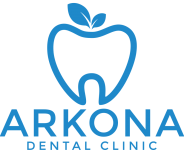Kids dentistry FAQ
Q: When should I take my child to the dentist for the first check-up?
A: In order to prevent dental problems, your child should see a dentist when the first tooth appears, or around his/her first birthday.
Q: Are baby teeth really that important to my child?
A: Primary, or “baby,” teeth are important for many reasons. Not only do they help children speak clearly and chew naturally, they also aid in forming a path that permanent teeth can follow when they are ready to erupt.
Q: Are thumbsucking and pacifier habits harmful for a child’s teeth?
A: Thumb and pacifier sucking habits will generally only become a problem if they go on for a very long period of time. Most children stop these habits on their own, but if they are still sucking their thumbs or fingers past the age of three, a mouth appliance may be recommended by Dr.McCallum/Lovell.
Q: How often does my child need to see the dentist?
A: A check-up every six months is recommended in order prevent cavities and other dental problems. However, Dr.McCallum/Lovell can tell you when and how often your child should visit based on their personal oral health.
Q: Should I be using fluoridated toothpaste with my child?
A: For children from birth to 3 years of age, the use of fluoridated toothpaste is determined by the level of risk of tooth decay. Parents should consult a health professional to determine whether their child up to 3 years of age is at risk of developing tooth decay. If such a risk exists, the child’s teeth should be brushed by an adult using a minimal amount (a portion the size of a grain of rice) of fluoridated toothpaste. Use of fluoridated toothpaste in a small amount has been determined to achieve a balance between the benefits of fluoride and the risk of developing fluorosis. If the child is not considered to be at risk, the teeth should be brushed by an adult using a toothbrush moistened only with water.
For children from 3 to 6 years of age, only a small amount (a portion the size of a green pea) of fluoridated toothpaste should be used. Children in this age group should be assisted by an adult in brushing their teeth.
Q: How safe are dental X-rays?
A: There is very little risk in dental X-rays. Our dentists are especially careful to limit the amount of radiation to which children are exposed. Lead aprons and high-speed film are used to ensure safety and minimize the amount of radiation.
Q: How can parents help prevent tooth decay?
A: Parents should take their children to the dentist regularly, beginning with the eruption of the first tooth. Then, the dentist can recommend a specific program of brushing, flossing, and other treatments for parents to supervise and teach to their children. These home treatments, when added to regular dental visits and a balanced diet, will help give your child a lifetime of healthy habits.

